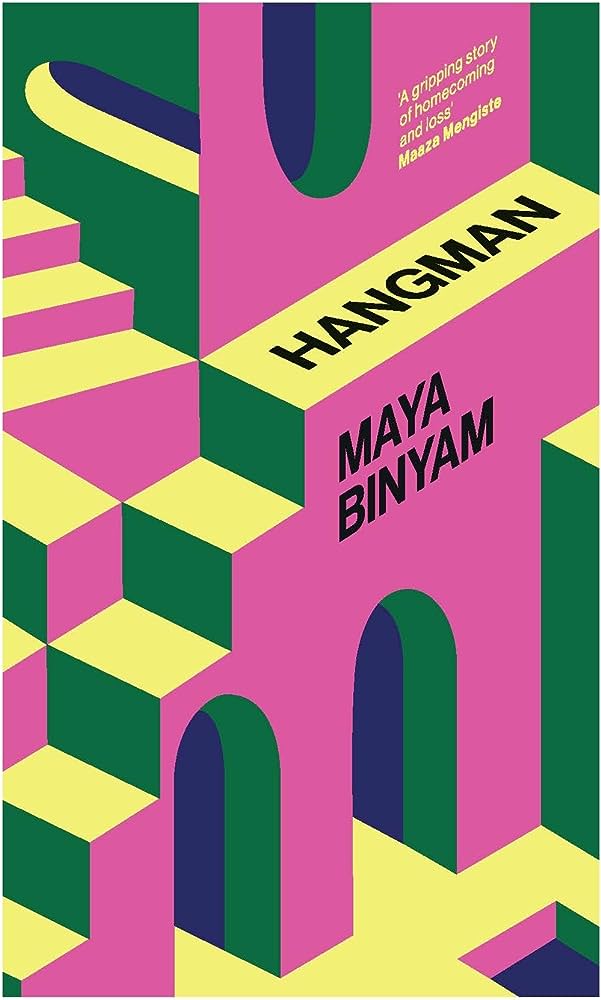Introduction
Writing is an incredible tool for self-expression, storytelling, and personal growth. Whether you’re an aspiring author, a student looking to improve your skills, or someone who enjoys journaling, writing prompts can help ignite fresh ideas. They serve as creative triggers that push writers beyond their usual thought patterns, helping to overcome writer’s block and explore new storytelling styles.
This article explores the best writing prompts to spark creativity, categorized based on genres, themes, and personal growth. Whether you prefer fiction, non-fiction, poetry, or journaling, these prompts will encourage you to think outside the box and enhance your writing skills.
Why Use Writing Prompts?

1. Overcoming Writer’s Block
At times, every writer struggles to find inspiration. Writing prompts act as jump-starts, giving you a direction to start writing without overthinking.
2. Enhancing Creativity
Creative prompts push you to explore unique perspectives, experiment with new writing techniques, and develop fresh ideas.
3. Developing Writing Skills
Using prompts consistently helps improve storytelling, structure, and descriptive writing. They encourage writers to think critically and engage deeply with their subject.
The Role of Writing Prompts
Writing prompts play an important role in a writer’s journey. They can help you develop your voice and style by pushing you to write outside your comfort zone. Prompts also connect you with other writers who may share their ideas and experiences, creating a supportive writing community.
Different Types of Writing Prompts

1. Fiction Writing Prompts
Fiction writing prompts encourage storytelling with imaginative and thought-provoking scenarios. These can help generate ideas for short stories, novels, or creative exercises.
- “A character wakes up in a world where no one remembers them. What happens next?”
- “A traveler finds an ancient map leading to a lost city. What secrets lie ahead?”
- “A scientist discovers a way to communicate with animals, but no one believes them.”
2. Non-Fiction Writing Prompts
These prompts help with personal reflection, essays, and opinion pieces. They guide you in exploring real-life experiences and insights.
- “Write about a moment that changed your perspective on life.”
- “Describe a challenge you faced and how you overcame it.”
- “Write about a historical event as if you were there witnessing it.”
3. Poetry Writing Prompts
Poetry prompts inspire creativity through rhythm, emotions, and vivid imagery.
- “Write a poem about a memory that feels like a dream.”
- “Describe a storm without using the words ‘rain,’ ‘wind,’ or ‘thunder’.”
- “Write a haiku about the feeling of nostalgia.”
Creative Writing Prompts for Different Genres

1. Mystery and Thriller Writing Prompts
If you love writing suspenseful stories, these prompts will help create tension and mystery.
- “A detective receives a letter predicting a crime before it happens.”
- “Every morning, an unknown person leaves a gift at your doorstep. One day, it’s a warning.”
- “A person vanishes without a trace, but their phone keeps sending messages.”
2. Fantasy and Science Fiction Writing Prompts
Create fascinating worlds, magical adventures, or futuristic settings with these prompts.
- “A hidden portal in an old bookstore leads to another universe.”
- “Time travel is real, but it comes with a price no one expected.”
- “A spaceship crew wakes up to find that they are not alone.”
3. Romance Writing Prompts
Whether it’s heartwarming love stories or tragic romances, these prompts can spark emotional storytelling.
- “Two strangers keep running into each other in different cities across the world.”
- “A love letter from the past appears in your mailbox.”
- “A couple swaps lives for a week and learns unexpected truths about each other.”
Personal Growth and Journaling Prompts

Writing isn’t just for storytelling it can also be a tool for self-discovery and personal reflection. Journaling helps process thoughts, reduce stress, and document experiences.
1. Self-Reflection Prompts
- “Write a letter to your younger self.”
- “List five moments in your life that shaped who you are today.”
- “Describe what happiness means to you.”
2. Gratitude and Mindfulness Prompts
- “Write about three things you are grateful for today.”
- “Describe a place where you feel the most at peace.”
- “What small joys do you often overlook in daily life?”
3. Goal-Setting and Motivation Prompts
- “What are three goals you want to achieve this year?”
- “Describe your ideal future and what steps you need to take to get there.”
- “Write about a personal strength and how it has helped you in life.”
Tips for Using Writing Prompts Effectively

1. Set a Timer
Give yourself 10-15 minutes per prompt to encourage quick thinking and creativity.
2. Don’t Overthink
Let your thoughts flow freely without worrying about perfection.
3. Experiment with Styles
Try writing in different narrative voices, tenses, and perspectives.
4. Use Prompts Daily
Building a writing habit with daily prompts helps boost consistency and confidence.
How to Use Writing Prompts Effectively

To get the most out of writing prompts, it’s important to approach them in a fun and relaxed way. Start by reading the prompt carefully and taking a moment to think about it. You can write freely without worrying about making it perfect. The goal is to let your ideas flow. Set a timer for 10-20 minutes and write as much as you can without stopping. This exercise can help you discover new thoughts and feelings.
Keeping a Prompt Journal
One great way to use writing prompts is by keeping a prompt journal. In this journal, you can write down the prompts you like and your responses to them. This allows you to track your progress and see how your writing evolves over time. You can also revisit old prompts to see if you have new ideas or perspectives. A prompt journal can become a valuable resource for inspiration.
Sharing Your Writing
Sharing your work can be a rewarding experience. Once you complete a prompt, consider sharing your writing with friends, family, or writing groups. They can provide helpful feedback and encouragement. You can also join online communities or social media groups where writers share their work and support each other. Engaging with others can help you feel more connected and motivated to continue writing.
The Joy of Writing
Ultimately, the joy of writing comes from expressing yourself and sharing your thoughts. Writing prompts are tools that can help you find that joy and encourage your creativity. Whether you write fiction, poetry, or personal reflections, prompts can lead you to new ideas and discoveries. Embrace the process and enjoy your writing journey!
Finding the Right Prompts for You
There are many types of writing prompts available, so it’s essential to find the ones that resonate with you. You can explore prompts for fiction, non-fiction, poetry, and journaling. Think about what type of writing you enjoy the most and choose prompts that align with your interests. Don’t be afraid to try different types, as this can help you grow as a writer and expand your creativity.
Writing with Friends

Writing prompts can be even more fun when you do them with friends. Gather a group of friends or join a writing club and pick a prompt together. Each person can write their own response, and then you can share what you wrote. This group activity can spark creativity and give you new ideas. Hearing how others interpret the same prompt can open your mind to different perspectives.
Combining Prompts with Daily Life
You can also combine writing prompts with your daily life. Use prompts that relate to your experiences, feelings, or surroundings. For example, if a prompt asks you to describe a favorite memory, think about a recent event that made you happy. This approach makes writing feel more personal and meaningful, as you connect it to your life.
Finding Inspiration Outside of Writing
Sometimes, inspiration can come from outside the world of writing. Explore art, music, or nature for new ideas. Visiting a museum, listening to a song, or taking a walk can spark your creativity. You can then use these experiences as inspiration for your writing prompts. Opening yourself up to different forms of creativity can enhance your writing and give you fresh ideas.
Creating Your Own Prompts
You don’t always have to use prompts from books or websites. You can create your own! Think about a question or an idea that interests you. For example, “What would happen if animals could talk?” or “Describe a world without electricity.” Making your own prompts helps you develop creativity and explore new ideas.
Challenges of Using Writing Prompts
While writing prompts can be helpful, they can also present some challenges. For example:
- Feeling Restricted: Some writers might feel limited by the prompt and struggle to express their creativity.
- Difficulty in Choosing: With so many prompts available, it can be overwhelming to decide which one to use.
- Time Constraints: Finding time to write can be tough, especially if you have a busy schedule.
The Future of Writing Prompts

The future of writing prompts looks bright. With the rise of technology and online platforms, more writers are sharing prompts and engaging in creative writing. Virtual writing workshops and social media groups allow writers to connect and inspire each other. As more people recognize the value of writing prompts, we can expect to see even more resources and ideas available for writers to explore.
Comparative Table: Writing Prompts by Category
| Category | Example Prompt |
|---|---|
| Fiction | “A person wakes up with no memory but finds a mysterious note in their pocket.” |
| Non-Fiction | “Describe a lesson you learned from a difficult experience.” |
| Poetry | “Write a poem about the changing of seasons using only colors.” |
| Mystery | “An old diary reveals secrets about a forgotten crime.” |
| Fantasy | “A child discovers they can hear whispers from the stars.” |
| Romance | “A couple meets for the first time in a coffee shop—but one of them feels like they’ve met before.” |
| Journaling | “List three things you love about yourself and why.” |
Analysis Table: Benefits of Writing Prompts
| Benefit | Description |
|---|---|
| Overcoming Writer’s Block | Prompts can help you break through creative barriers. |
| Encouraging Exploration | Prompts let you try new genres and topics. |
| Skill Development | Prompts help you practice and improve your writing. |
| Boosting Confidence | Completing prompts can make you feel more confident in your writing. |
| Fostering Self-Discovery | Prompts can lead to personal insights and reflections. |
Conclusion
Writing prompts are powerful tools that fuel creativity, improve writing skills, and inspire unique stories. Whether you want to craft fiction, journal about personal experiences, or experiment with poetry, prompts provide the perfect starting point. By using daily writing exercises, exploring different genres, and challenging yourself with new themes, you can enhance your storytelling abilities and discover new perspectives.
Call to Action
Start using writing prompts today! Pick one from this list and challenge yourself to write for 10 minutes. Share your experiences in the comments or tag us in your creative writing journey!











